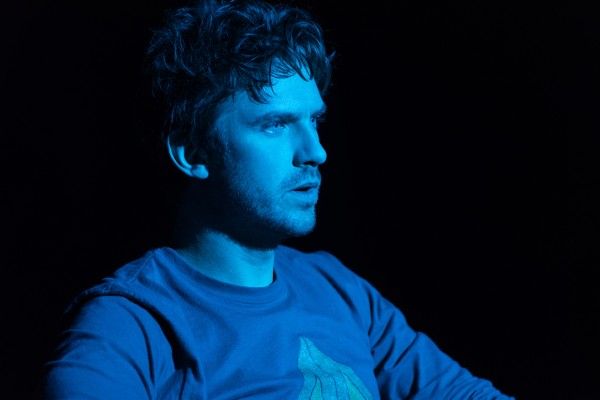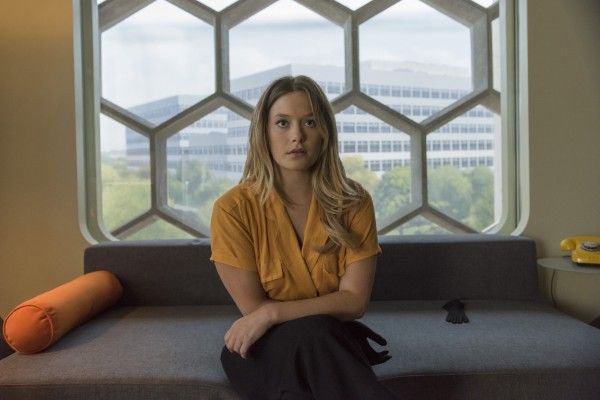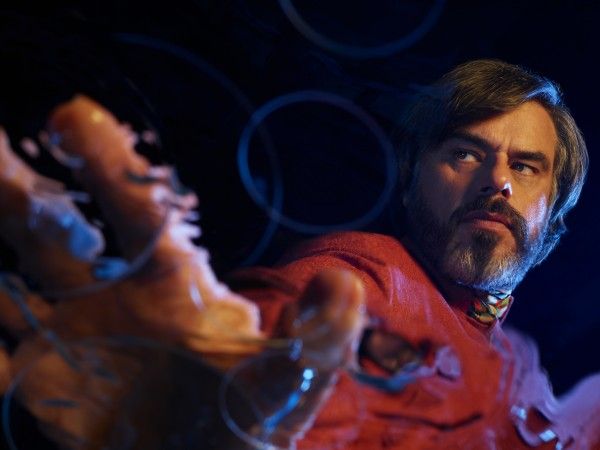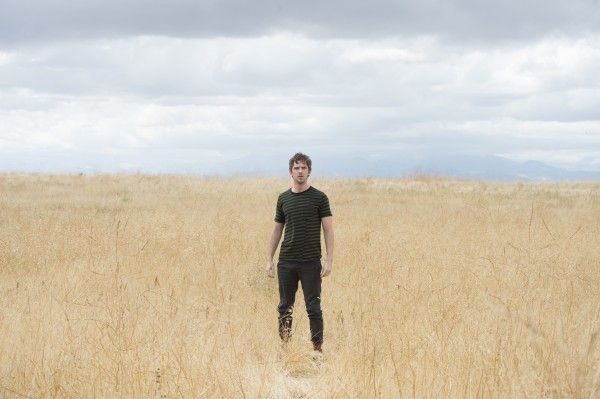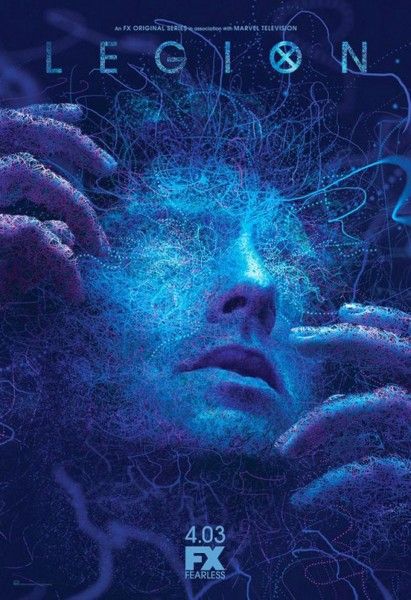From show creator Noah Hawley (Fargo), the FX series Legion, based on the Marvel comics by Chris Claremont and Bill Sienkiewicz, is back with all new levels of weird and wild. Picking up approximately one year after a mysterious orb appeared and took David Haller (Dan Stevens) away to an unknown place, he’s not only trying to figure out what’s happened in the time that’s passed, but he’s also dealing with the fact that he’s not really schizophrenic, like he was lead to believe, and could instead be the most powerful mutant who ever lived. At the same time, David must learn to accept who he is without the parasitic Shadow King, aka Amahl Farouk, within him and now inside of a new host.
During this 1-on-1 interview with Collider, executive producer Noah Hawley talked about how Season 2 evolved, giving himself a lot of options, using the genre to solve the characters, teeth-chattering, the challenges that David and Syd (Rachel Keller) face in their unconventional romance, how he’s planning Season 3, and what it’s like to juggle to very successful TV shows, with Fargo and Legion.
Collider: How did the whole teeth-chattering thing happen? That is such a haunting sound! Was the goal to give people nightmares?
NOAH HAWLEY: Yeah, probably. I think it’s good, if we can do that. I had to find something very interesting about some very passive people. If you’re going to say that people are frozen in place, that stillness can be scary, but certainly, that idea of the chattering teeth is very visceral, for a lot of people. Clearly, it’s effective.
Between teeth-chattering and big dance numbers, were you trying to go all-out for the Season 2 premiere?
HAWLEY: No. I hope it never feels like a kitchen sink show. Everything is there for a reason. But if you think about it as an experience rather than a story, what’s interesting to me is the subjectivity of the experience of it. You have an interpretation of what it means, which is different from somebody else. That doesn’t tend to be what corporate storytelling is about. There’s really only one note you ever get, which is, “Clarity,” and I get those notes about clarity. I actually work very hard to try to make it so that the things I don’t want you to be confused about, you’re not confused about, like where are they? Who are these people? What’s Division 3? I try to be very clear about those things, so that the things I want you to be like, “That’s interesting, what is that all about,” are what I want you to be thinking about.
Looking back on Season 1, what do you feel worked the best and what did you want to build on, for Season 2?
HAWLEY: It’s always best, to me, when the genre can be used to solve the characters. So, when you can use the genre and the inventive of the storytelling, Black Mirror is a great example of using The Twilight Zone premise to explore humanity. In Season 2, there are a few episodes where I’m really proud of how I was able to do things that you can’t do, in a straight drama, like Fargo. When you have a show where you can literally go into people’s memories and see the things that make them who they are, you can’t do that with a normal show. You can put somebody in therapy and they can talk about it. The show, for me, works best when it’s very character-driven and emotional.
When you left Season 1 where you did, did you have a firm plan for where you’d take that, in Season 2? Did you know that everyone else would have this time jump, while David didn’t?
HAWLEY: No, I wouldn’t say that I knew that. I’ve never made a second season of anything, as in the continuing story of, so I’m not really wired and don’t really know how to do that. It seems weird to me, although I love watching multiple seasons of things. It was something of a challenge to open it up to give myself a lot of options. So, no, I didn’t know, when I put him in the orb, what exactly was going on, but I liked that about it. As long as what is going on is character-driven, morally interesting and emotional, than I think it’s a victory.
I love that where you left Season 1 gave me absolutely no idea where you were going to take things in Season 2.
HAWLEY: Yeah. Breaking Bad is a great example of a show where you would literally pick up, the minute after you’d left. They maintained that out of the frying pan and into the fire tension, for season after season after season, in real time. But, this just isn’t that show. What some distance and some time does is allow you to reset the table. If Season 1 was about going from confusion to clarity, as David was like, “Oh, this is actually what’s going on. I don’t have schizophrenia, I have these powers. There’s this monster. What is that? Now, I understand what it is,” I didn’t want to start Season 2 with clarity. You have to allow yourself the space to create some mystery that you then can solve, over the course of the second season.
What challenges will David and Syd face, this season, and what do you enjoy about telling such an unconventional love story?
HAWLEY: A great love story is, on some level, what fuels the world. Kurt Vonnegut once said, “If you put a love story in anything, it makes people stupid because it’s all they want to hear about.” That’s very funny. I do think, when you’re talking about these larger than life concepts of saving the world, often the stakes of that can be really hard to pin down. He’s on a path. He’s starting to figure things out. He can go in a good direction, or he can go in a bad direction. What is keeping him good is this love that he has. Relationships are hard, and that’s not always gonna go well. Especially now that he’s been gone for this period of time, maybe she doesn’t trust him as much as she used to. Therefore, his path is really tied into this love and this relationship, which then makes the stakes of the relationship much higher. If you can save the world by saving this relationship, than it’s clear what you’re doing.
Did you need ten episodes to tell the story you’re telling, this season?
HAWLEY: With the first season, the show was so different than everything else. I was asking so much of the audience that I really wanted to tell a single story, with a beginning, middle and end. This season, now that people know the show and we can open it up a little more, we have a couple of hours that are more stand-alone, in a certain way that allows me to play with the medium. They’re very informative, emotionally and on a character level, and they’re certainly relevant to the plot, but I’m not interested in the plot, the whole time. That’s not what this show is. It was actually really nice to have a little bit more breathing room to be able to play with the medium.
Do you have a pretty good idea of what you’d want to do with Season 3?
HAWLEY: I have an overall journey for David that is not story specific, but is the beats of it. It starts here, we’re going here, and it’s headed here. The fun of it is to not know too much. I approached the writing of the second season the same way as the first. I want to have an overall sense of the beats to say, “All right, here’s where I want to be at the end, and here are some important beats to hit, along the way. Maybe this is the episode where David is trapped in his mind, and Syd if out in the world trying to figure out which one of his memories are real.” But, I don’t want to know much more than that. The act of creation is an imaginative act. This is much more whimsical. I don’t want to know too much, other than to say, “This is the road he’s on, and I’m interested in how he gets there.”
What’s it like to be at a point where you’re juggling two very successful TV series, with Fargo and Legion?
HAWLEY: My first two shows never made it out of the first season. I made a very good living writing pilots, but until Fargo, I had no experience with success, on that level. I definitely took on a lot, with the assumption that Fargo would be the same as everything else, which is that it would work okay, and then I’d have to do something new. Certainly, the last two or three years, I’ve been in this crazy multi-tasking world that I don’t think is sustainable, at least not all at the same time. I love doing it all, but it was hard to go back from Fargo Season 3 to Legion Season 2. It was much harder than it was to go from Legion to Fargo because Fargo is more traditional, linear storytelling, and Legion is anything. It’s anything that you can think of, and that requires your brain to be fresh and excited. I found my way to a place that I’m very happy with, but I need to start building some padding into it.
Legion airs on Tuesday nights on FX.


